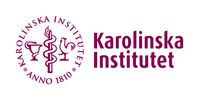Multi-million donation to cardiovascular research at Karolinska Institutet
The Erling-Persson Family Foundation is donating SEK 27.7 million towards an MR scanner for cardiovascular research at Karolinska Institutet. The gift will fund the establishment of a research environment devoted to finding new avenues for diagnosing and treating cardiovascular disease.
Cardiovascular disease accounts for 40 per cent of all deaths in Sweden, making it the single largest public health problem in the country. Improved diagnostic and treatment methods will give enormous social gains.
MRI is an advanced complement to echocardiography and computer tomography. Rapid developments in the technique are opening up new opportunities for identifying and therefore treating cardiovascular disease. Areas in which MR diagnostics can prove particularly valuable include atherosclerosis, myocardial infarction, heart failure, myocarditis, cardiac arrhythmia, congenital heart defects and diabetes-related cardiovascular disease.
”Our aim is to be a leading MRI facility in the cardiovascular field for both clinical and research purposes,” says Professor Lars Rydén at Karolinska Institutet, one of the members of the group awarded the grant. ”Acquiring a scanner means that we'll have an invaluable tool for discovering new cardiovascular treatments more quickly.”
At present, the researchers use off-premises MR scanners intended mainly for regular hospital use. Research opportunities are thus limited and have to compete with clinical diagnosis, which is already under pressure from tight scanner schedules. The donation will therefore benefit not only research but also other categories of patient, whose scans will be subject to a shorter delay.
”Having an MR scanner for cardiovascular research also makes these scans much cheaper, which means that our existing grants will stretch to more and new scientific activity,” says Professor Rydén.
”The MR scanner will make a significant contribution to the research being done into cardiovascular diseases at Karolinska Institutet,” says KI president, Professor Harriet Wallberg-Henriksson. ”It is therefore with much gratitude that we accept this donation.”
Contacts
For further information, please contact:
Professor Lars Rydén
Department of Medicine, Solna
Tel: +46 8 517 721 71
Email: lars.ryden@ki.se
Department of Medicine, Solna (http://edit.ki.se/ki/jsp/polopoly.jsp?d=4851&l=en)
Agneta Stålhandske
Senior Development Officer
Tel: +46 8 524 867 94
Email: agneta.stalhandske@ki.se
Development Office (http://ki.se/ki/jsp/polopoly.jsp?l=en&d=13145&a=120767)
(agneta.stalhandske@ki.se)
Press Office
Tel: + 46 8 524 860 77
E-mail: pressinfo@ki.se
Pressroom (http://ki.se/pressroom)
Karolinska Institutet (http://ki.se/english) is one of the world’s leading medical universities. It accounts for over 40 per cent of the medical academic research conducted in Sweden and offers the country’s broadest range of education in medicine and health sciences. Since 1901 the Nobel Assembly at Karolinska Institutet has selected the Nobel laureates in Physiology or Medicine.
Subscribe to releases from Karolinska Institutet - English
Subscribe to all the latest releases from Karolinska Institutet - English by registering your e-mail address below. You can unsubscribe at any time.
Latest releases from Karolinska Institutet - English
New method reveals how the brain and inner ear are formed3.4.2025 20:00:00 CEST | Pressmeddelande
Researchers at Karolinska Institutet have developed a method that shows how the nervous system and sensory organs are formed in an embryo. By labelling stem cells with a genetic ‘barcode’, they have been able to follow the cells’ developmental journey and discover how the inner ear is formed in mice. The discovery, published in Science, could provide important insights for future treatment of hearing loss.
Fluoride in drinking water is associated with impaired childhood cognition7.3.2025 15:30:00 CET | Pressmeddelande
Elevated concentrations of fluoride can occur in well water, and in some countries, it is added to drinking water to counteract caries in the population. A study from Karolinska Institutet in Sweden now supports a few previous studies indicating that exposure to fluoride during the fetal stage or early childhood may impair cognition in children. The study is published in the journal Environmental Health Perspectives.
Children with ARFID face increased risk of disease17.2.2025 17:00:00 CET | Pressmeddelande
Children with avoidant restrictive food intake disorder (ARFID) have an elevated risk of developing psychiatric and physical conditions, a new study from Karolinska Institutet published in JAMA Pediatrics reports. The study highlights the importance of early identification to improve care of these children.
Preterm babies receive insufficient pain management27.1.2025 15:29:17 CET | Pressmeddelande
A large proportion of babies born very early need intensive care, which can be painful. But the healthcare system fails to provide pain relief to the full extent. This is shown by the largest survey to date of pain in neonatal care, now published in the journal Pain.
New study paves way for immunotherapies tailored for childhood cancers20.1.2025 17:00:00 CET | Pressmeddelande
Researchers at Karolinska Institutet and the Astrid Lindgren Children’s Hospital in Sweden have determined how children’s immune systems react to different kinds of cancer depending on their age. The study, which is published in the journal Cell, reveals significant differences between the immune response of children and adults, and has the potential to lead to new tailored treatments for children with cancer.
In our pressroom you can read all our latest releases, find our press contacts, images, documents and other relevant information about us.
Visit our pressroom